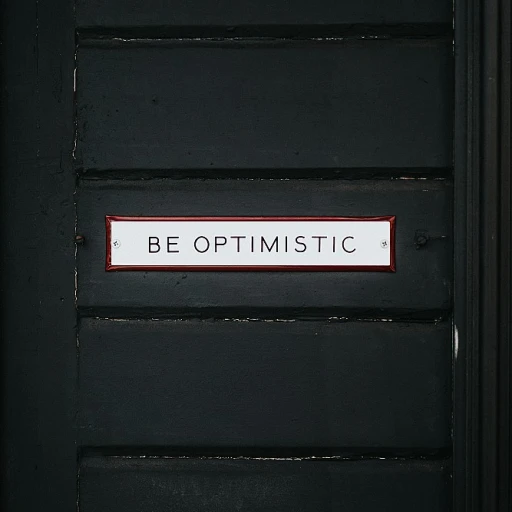The Essential Role of Recruiters in Health Information Management
Health information management recruiters play a pivotal role in the recruitment landscape, especially given the growing complexity of the healthcare industry. These recruiters are responsible for bridging the gap between organizations and qualified candidates who are adept at managing an array of health information tasks. From executing efficient recruiting strategies to connecting with key staffing agencies, these professionals ensure the seamless flow of information and personnel across the healthcare sector.
They not only source candidates for health information management positions but also excel in understanding the intricacies and unique challenges faced by organizations in this sector. The demand for skilled health professionals is high, and recruiters must be adept at identifying individuals who not only possess the required technical skills but also excel in management healthcare practices.
In the United States, a primary focus for recruiters is to engage in an ongoing search for top talent who can adapt to the transformative nature of health technologies. This involves understanding evolving job roles and the impact of technological advancements on information management tasks.
Recruiters also act as consultants for their clients, advising on best recruiting practices and the utilization of specialized search firms and executive networks. By maintaining strong professional relationships, they position themselves as a vital link for healthcare organizations looking to enhance their talent acquisition strategies in this dynamic field.
Overcoming Hurdles in Health Information Management Staffing
Recruiting in the healthcare information management sector can be challenging due to several factors that both recruiters and hiring managers need to address.
- Supply and Demand Imbalance: The healthcare industry often faces a shortage of skilled professionals in health information management. With the growing demand for healthcare services, finding qualified candidates remains a challenge. Organizations must act swiftly to secure the right talent as competition intensifies.
- High-Level Requirements: Positions in health information management frequently require specialized skills in information technology and management. Candidates usually need a specific set of qualifications and experience, which can limit the pool of suitable applicants.
- Regulatory Changes: The healthcare industry is heavily regulated, and new legislation can emerge, impacting the way information is managed. Recruiters need to stay informed about these changes to ensure compliance and attract candidates who are well-versed in current standards.
- Attractive Offers From Competitors: In a landscape where top talent is in high demand, healthcare recruiters often face competition from other firms. Offering competitive salaries and benefits is crucial, but so is presenting a workplace culture that stands out.
To tackle these challenges effectively, staying updated on industry trends and recruitment strategies is essential. For an in-depth exploration of these dynamics, tuning into
top HR podcasts can provide valuable insights and strategies. This knowledge can empower healthcare executives and recruiters to make more informed decisions and enhance their talent acquisition processes.
Effective Talent Attraction Practices
Recruiting top talent in the world of health information management is crucial for the advancement of the healthcare industry. It involves more than just finding candidates with the right qualifications. It's about attracting individuals who are passionate about healthcare and who will integrate seamlessly into the organization’s culture.
Healthcare management recruiters recognize that one of the best ways to draw in top talent is by showcasing the organization's commitment to innovation in health information technology. This can be communicated during job searches and through staffing agencies, ensuring potential candidates understand how their role contributes to the broader health care landscape.
Creating compelling job descriptions is another key tactic. They should not only highlight the specific responsibilities and requirements but also the opportunities for career growth within the organization. Highlighting roles such as project manager or director positions can attract experienced professionals from across the United States.
Engaging with candidates throughout the recruitment process is vital. Building a positive candidate experience, from the initial job contact to final interviews, can significantly impact the perception of the organization. Firms must ensure their recruiters maintain open lines of communication, offering feedback and updates to keep candidates engaged.
In addition to traditional methods, embracing technology and social media platforms helps in reaching potential candidates who are actively involved in healthcare information communities online. Executive search firms focusing on recruitment for the healthcare industry often leverage these platforms to access a broader pool of talent.
Finally, employers should ensure they're recognized as a leading name in the healthcare industry by being visible in industry-related events and forums. Participation lends credibility, positioning the organization as a sought-after employer. For those looking to navigate careers in industries beyond healthcare, exploring career opportunities at Hollywood Casino showcases an example of diverse career paths in various sectors.
Integrating Technology in the Recruitment Process
The dynamic landscape of health information management and recruiting has seen an exponential growth in the use of technology. By leveraging advanced tools and platforms, healthcare recruiters can streamline processes, improve candidate experiences, and expand their reach in the competitive job market.
One of the primary ways to implement technology in recruitment is through Applicant Tracking Systems (ATS). These systems enable healthcare recruiters to manage job applications efficiently, ensuring that no viable candidate goes unnoticed. They can automatically screen applications for keywords related to health care, information management, and other critical areas, allowing recruiters to focus on engaging with the best talent.
Moreover, integrating Artificial Intelligence (AI) in the recruiting process can significantly reduce staffing timeframes. AI-driven tools can automate repetitive tasks, such as scheduling interviews and sorting through resumes, freeing up recruiters to dedicate more time to building relationships with potential candidates and understanding their needs – a vital component of successful recruitment.
Utilizing social media and professional networking platforms is another strategy for harnessing technology in recruitment. These platforms serve as powerful tools for connecting with potential candidates, especially in niche areas such as healthcare information technology and executive search.
Video conferencing tools have also become indispensable in modern recruitment. With them, recruiters can conduct initial interviews, saving time and resources while effectively narrowing down the pool of candidates.
Lastly, data analytics plays a crucial role in informing staffing agencies and managers about the effectiveness of their recruiting strategies. By reviewing data on candidate engagement, conversion rates, and hiring timeframes, search firms and executive recruiters can continuously refine their approaches.
As the healthcare industry continues to evolve, staying updated with the latest technological advancements and integrating them thoughtfully into your recruiting strategy will prove essential in attracting and retaining top-tier talent.
Fostering Effective Collaboration and Communication
Building strong relationships with health information management recruiters is essential in the healthcare industry. These relationships hinge on consistent and effective communication. When you work closely with recruiters, whether you're a hiring manager, director, or executive, you'll foster a partnership that not only eases the recruiting process but also ensures the best culture fit for your organization.
A solid relationship with recruiters typically leads to a healthier exchange of information. Transparency is key; share comprehensive details about your healthcare information needs, job descriptions, and expectations with your recruiting partners. This will enable recruiters to better tailor their search strategy and find candidates who align with your organizational goals.
Engage in Strategic Interactions
Healthcare recruiters appreciate when their industry contacts are involved in the recruiting process. Attend industry events, webinars, and panels to offer your insights on current trends in health information management. This not only increases your visibility in staffing and search firms but also positions you as a thought leader in the management healthcare space.
Establishing open lines of communication can significantly aid recruiters in fine-tuning their candidate search, improving the quality of talent they bring to the table. This interaction provides valuable feedback mechanisms that future recruitment activities can benefit from.
Cultivating Mutual Respect and Trust
Trust and respect are foundational elements in working with any recruiting search or staffing agencies. Cultivate respect by showing gratitude for the recruiters' efforts and understanding the complex nature of recruiting in the healthcare information technology sector. Utilize these recruiters' expertise to streamline the recruitment process, making use of their intimate industry knowledge.
Invite recruiters to offer input on job postings, market trends, and even interview processes to ensure both sides are aligned in their objectives. This approach not only strengthens your relationship but also enhances mutual trust.
Leveraging Technology for Better Connection
While traditional means of communication remain valuable, embracing technology can bolster your relationship with recruiters in the fast-evolving healthcare industry. Implementing communication tools like CRM systems can automate routine interactions and ensure no message falls through the cracks.
Technology aids recruiters in staying updated with the latest developments in the healthcare management domain, ensuring they can offer the most relevant and effective recruitment solutions. Consistent updates and advancements in your organization's recruitment process provide recruiters with a better framework to work within, ultimately leading to enhanced talent acquisition outcomes.
Adapting to New Paradigms in Health Information Management Recruitment
As the healthcare landscape continues to evolve, new trends and technologies are reshaping the way health information management recruitment is approached. With the healthcare industry's ever-growing demand for skilled professionals, staying ahead of these trends is crucial for recruiters and hiring managers alike.
Staying updated with the latest in information technology and healthcare management is essential. Many healthcare recruiters are leveraging advanced recruitment tools, integrating artificial intelligence and machine learning to streamline the recruiting process. This technology assists in better matching candidates with jobs, ensuring a more efficient job search and recruitment process.
Recruiters are also noticing a rise in the importance of telehealth and remote care roles, leading to an increased need for professionals who can manage and analyze digital health data. This shift demands that staffing agencies and recruiting firms adjust their strategies to focus on candidates with strong digital skills and an aptitude for navigating virtual healthcare environments.
In addition to technology, the healthcare information management industry is seeing a shift towards more inclusive hiring practices. This includes a greater emphasis on diversity and inclusion within staffing processes, ensuring that the workforce better mirrors the diverse patient populations they serve.
Lastly, as the importance of data privacy and security grows in the healthcare sector, there's a pressing need for talent with expertise in health information security. This trend is driving demand for professionals who are not only skilled in data management but are also capable of navigating the complexities of healthcare regulations.
By embracing these future trends, recruiters, recruiting search firms, and healthcare executives can better position themselves to attract and retain top talent, ensuring the continued growth and success of the healthcare industry in the United States.














